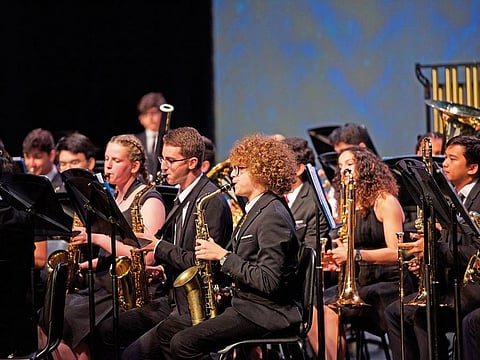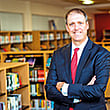Maximise skill sets to maximise results
An inclusive environment helps students achieve excellence in every sphere

For children, learning is a constant process, and schools play a critical role during their formative years. They shape children to their maximum academic potential, preparing them to be well-groomed and responsible adults. Therefore, identifying and enrolling kids in a good school is crucial. Here are a few pointers to help parents recognise a good school to ensure their kids are developing their skills in a proper environment.
Personalised experience
The school must be an inclusive environment, where every child can access an education that meets their needs, says Dr Paul Richards, Superintendent, American School of Dubai. “It should provide a personalised and relevant educational experience, where there is ample data and other measures on what a student knows, what he or she can do, and what his or her disposition is (relevant mindsets, such as curiosity).”
The school must be an inclusive environment, where every child can access an education that meets their needs

He believes that young people need more voice and choice in their school experience, making their journey a collection of curated learning experiences, rather than a passive force-feeding of information and testing.
Community feeling
A good school helps its students develop as much as possible academically, socially, emotionally and physically. Graeme Scott, Director, Fairgreen International School, believes that a good school becomes a community where celebrations, challenges and sometimes even commiserations are shared. “Through an enriched student life, our students meet and make new friends from all over the world, and each learner is recognised as an individual.
Through an enriched student life, our students meet and make new friends from all over the world, and each learner is recognised as an individual.

“Our approach to pedagogy is research-supported and centred around building positive relationships. When I speak with my own three children, their favourite subjects were taught by their favourite teachers. This is no coincidence, as these teachers treated them with respect, challenged them at the outer levels of their own ability, supported them and made learning exciting and accessible to them.”
Scott believes that as children are naturally curious, it’s the school’s responsibility as educators to nurture their creativity and provide opportunities for them to demonstrate it across multiple dimensions. “Too often, creativity diminishes further through a child’s school career, so that by high school it’s all about memorising and recalling, which actually can be one of the more basic levels of thinking according to Bloom’s Taxonomy. We believe that creativity is vital at every stage of the learning journey. Creativity doesn’t just exist in design technology classes; it is equally at home in a maths class or a language class,” he adds.
Create passion for learning
The objective of education is learning, not teaching, says David Quick, Founding Principal, Riverston School Dubai. “Students learn best when they are part of the learning process. Therefore, our teachers show pupils how to learn. The emphasis is pushed away from teaching and on to learning. The learning skills they adopt are, quite frankly transferable and stand them in good stead in all their lessons as well as their life outside of school.”
For me, excellence is a culture that permeates every room, hall, corridor and outside the area of a school — a focus not on simply getting the best grade, but on getting the best education and creating a lifelong passion for learning.

A good school should be striving for excellence in everything that it does. “For me, excellence is a culture that permeates every room, hall, corridor and outside the area of a school — a focus not on simply getting the best grade, but on getting the best education and creating a lifelong passion for learning,” says Quick. “Our curriculum focuses on learning and learners; it encourages students to take risks, and it is responsive to individuals needs and interests. That way, all subjects come to life as we look to adapt what the curriculum may be to suit the needs and interests of the pupils in front of us.”
![Social media claims of cancellations dismissed; official updates to be shared through authorised channels. [Illustrative image]](http://media.assettype.com/gulfnews%2F2025-11-15%2Fx2mp12df%2Fexam.jpg?w=320&auto=format%2Ccompress&fit=max)


